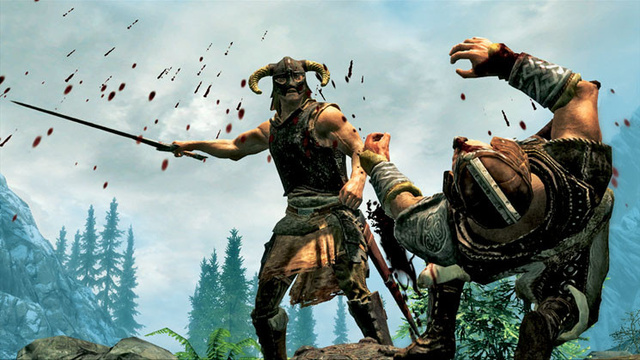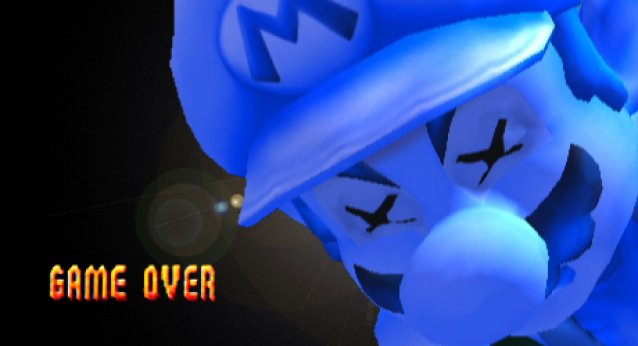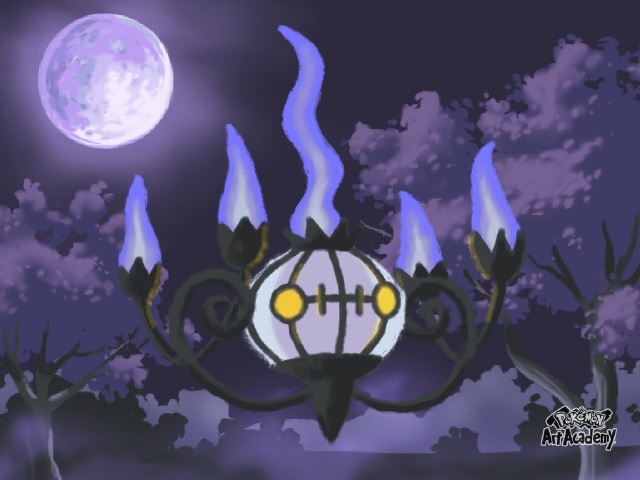


It is a commonly accepted (and extremely generalized) opinion that Westerners do not like Japanese games and Japanese do not like Western games. According to this notion, Westerners think that Japanese games contain too many scrawny androgynous young men with ridiculously styled hair and clothes, or on the flip side, too many pre-pubescent scantily clad girls with huge eyes. And of course the Japanese think Western games contain too many hulking obscene men with huge guns, with the only way to expel their testosterone by pouring ammo into either zombies, aliens, or other players. Yo-ge, kuso-ge, as the phrase has been popularized. Western games are shit.
“It's hard to feel this when you're in Japan, but there is a gap opening between the West in terms of pure quality.” Once said Hideo Kojima, creator of the Metal Gear Solid series. “If you're trying to break out overseas, then I think the only way is to divide your development teams between the Japanese and global markets. It's impossible to encompass it in a single group -- everything needs to be separate, down to the office and pay structure.”
But I don’t think this is needed. It is true however, that some games are very difficult if not impossible for the majority of a culture to understand. Can the average Japanese person understand Duke Nukem? Can the average Westerner understand a dating simulator for the Nintendo DS like Love Plus? Maybe not, but it does not mean that they wouldn’t understand or enjoy most other games from each other’s cultures.
In the 80s and 90s Japanese games were the gold standard. Mario, Legend of Zelda, and Donkey Kong in the 1980s helped establish what gaming is today, and helped to create the retro gamer culture that is popular in the West today. In the 1990s Sonic, Street Fighter, the Final Fantasy franchise and more incarnations of the Mario and Legend of Zelda franchises helped pave the way for Western innovation. These are all common household names in the West, and they came from Japan. Now name a few Japanese games as popular in the past eleven years in the West as the aforementioned. It’s tough right? Kingdom Hearts is a more recent game that was popular on both shores, yet it mixes Western Disney characters with Japanese Final Fantasy characters. And it did well! Maybe they’re onto something there…

So is it that Western audiences have changed, or that Japan hasn’t? I’d say it’s both. Japan is known for supporting pride in their domestic endeavors, and with a history of being closed off to the world for so many years, who can blame them? But this unfortunately means that foreign products can have a negative connotation and don’t get as much support as they should. I once read an anecdote about how the Xbox 360 is sold in most places in Japan, but they don’t usually bother to actually turn the system on for demonstration to customers. Whether they do this consciously or unconsciously, the market is being controlled to the point where it is difficult for foreign products to flourish. This means that Japanese gamers might never be exposed to many Western games to even determine whether or not they enjoy them. In many ways, Japan still closes themselves off to the world to develop and nourish their own culture.
Any game publisher looking for where the money is will of course target the largest audience-and even globally this tends to be the “casual gamers”, or those who only game occasionally. In Japan, most people who play games would not consider themselves gamers, nor would they appreciate being called one. Being called a gamer is more akin to an insult than a point of pride in Japan, as the traditional gamer image is that of an obsessed teenaged boy, not a hard-working adult. Yet the mass audience that a game marketer would target would be these casual adult “non-gamers”. These are the people who have a portable gaming system such as a Nintendo DS or Sony PSP in order to pass the time on those famous Japanese train or subway commutes. Outside of that though, most working Japanese adults have little free time at all, which means they don’t have much time to play console games.
As a result, portable gaming there is probably as huge as console gaming here is, if not more. It is also likely that most people who console game in Japan consider themselves “gamers” and either are young males, hide that fact shamefully, or have accepted it along with every negative connotation that goes with it. Unfortunately, these are probably the people Japanese console developers cater to, and these gamers are usually the ones who would be interested in the games most Westerners would not “get”. This is another problem contributing to the separation of Western and Japanese games.
Most of the big releases in Japan are a simply another notch in a series of long-standing fandoms. Many Westerners joke about the 30th Final Fantasy, or 20th Dragon Quest, if they’ve even heard of them at all. And most games that are original either need to appeal to the niche Japanese gamers or resign themselves to failure. This both stifles advancement and makes sure that most Japanese games don’t even make it over to the West. It also guarantees that the Japanese players themselves become used to a certain formula, causing them to reject anything different- such as Western games. Developers also feel the need to stick to a certain art style the Japanese generally have preferred in the past, ensuring that most Westerners reject their more fantastical and sometimes outdated graphics. Because most Japanese grow up with games only fitting a certain formula, they come to expect them to be only be a specific way. This causes developers to only create them within that expected formula and creates a cycle of stagnation.
I believe the solution to the problem is multifaceted. I also believe because it took many years for both Japan and the West to come to assume these things about each other, it will take years for the problem to be solved. The old mind-sets need to be thrown out on both sides and a gaming revolution needs to occur within Japan. As has been stated, the Japanese culture is rooted in tradition, and innovation in their games has largely become stagnant, thus change would be difficult to accept all at once, so it needs to be gradual. But I think to start Japanese publishers like Sony need to publish and promote more Western games, especially to their handheld portables. If it comes from a domestic company they trust, the Japanese have shown that they are willing to try it. We could see this for a fact when Sony’s Uncharted: Golden Abyss pre-orders for the PS Vita dominated the charts.

Popular and well established Japanese magazines Famitsū gave Western made and influenced The Elder Scrolls V: Skyrim a perfect score, the seventeenth game to earn it in over twenty-five years of running. This shows the Japanese can appreciate Western themes. But in order for the same to occur for Japanese games in the Western hemisphere, I believe they need to include some of their innovations. While the same Japanese game formula has been perpetuated, the West has made leaps in gaming since the majority of Japan last really paid attention. Whether it’s realism of the graphics they choose to take, non-linear gameplay, or anything else, it doesn’t matter. So long as it helps blow a breath of fresh air into the Japanese games industry.
I realize that there are many other problems and differences between Japanese and Western gamers, and many other ways to solve them, but I’d like to think I’ve pointed out some of the most important. Twenty years ago, it didn’t matter where your game was from or who it was made by- if it was a good game and brought something new to the table, audiences worldwide loved it. With gaming legends like Mario and Link under their belts, I think anyone can agree that when a game from Japan is a global hit, it’s something that will blow you away. It’s because their original games are so great that they can endure over twenty five years and many incarnations. And I think it’s time Japan showed the world the caliber of original games they can create again, don’t you?




 Review (of the previews of) Tomb Raider
Review (of the previews of) Tomb Raider Top 5 Reasons Youll Need to Sell a Kidney this Fall
Top 5 Reasons Youll Need to Sell a Kidney this Fall Whispering Willows: All chapters complete Walkthrough, Characters details and System Requirements
Whispering Willows: All chapters complete Walkthrough, Characters details and System Requirements Can A Video Game Jump Start Your Next Rewarding Creative Hobby?
Can A Video Game Jump Start Your Next Rewarding Creative Hobby? Destiny: Venus Gold Loot Chest locations Walkthrough Guide
Destiny: Venus Gold Loot Chest locations Walkthrough Guide